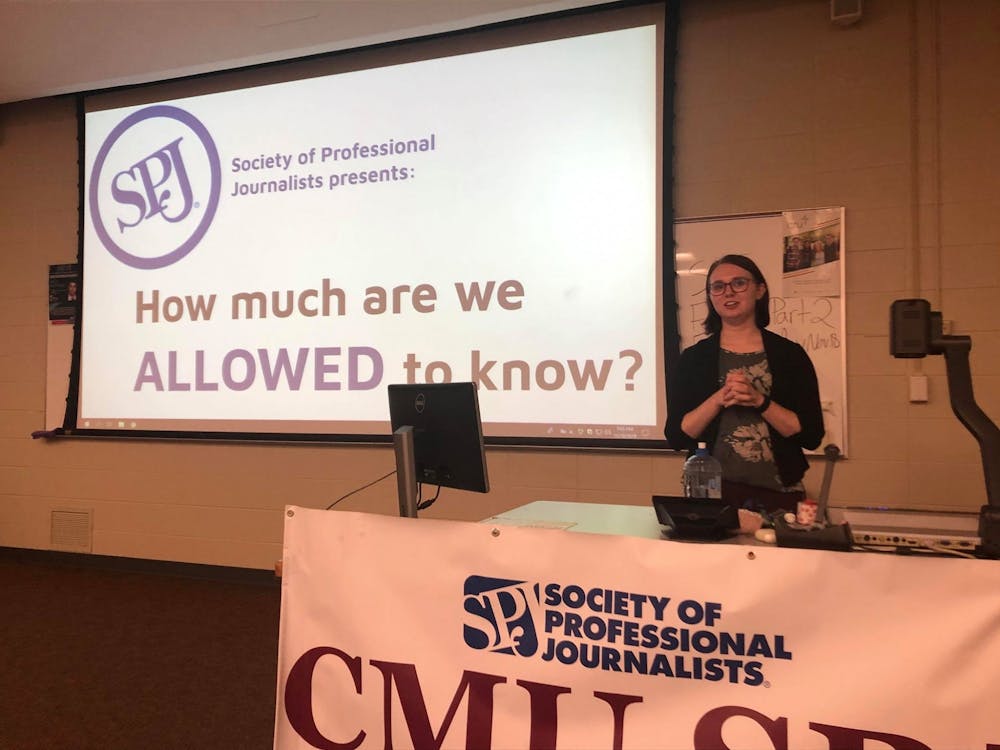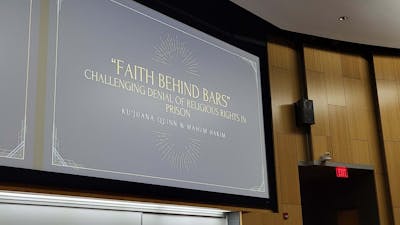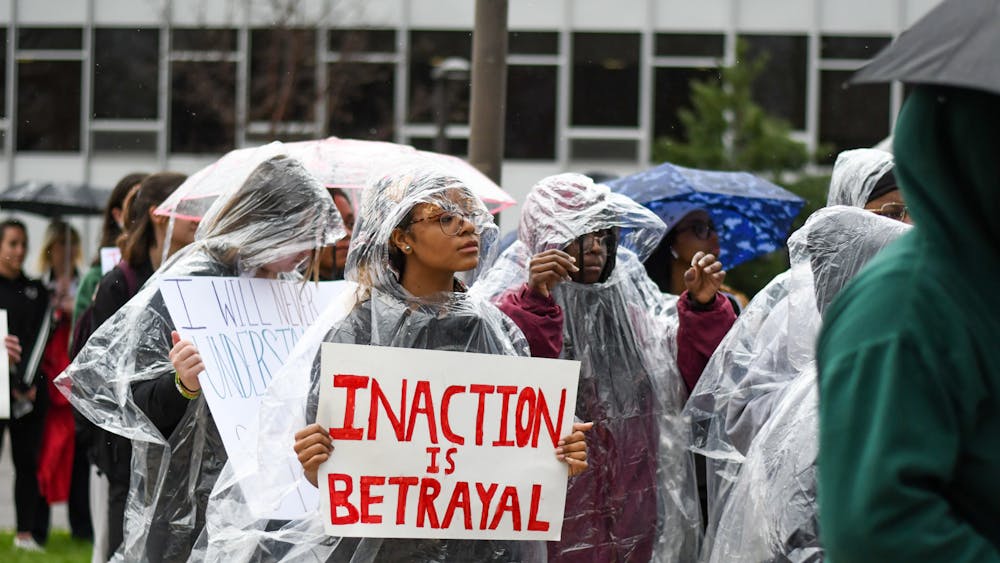SPJ presents heavily redacted police records at FOIA presentation

Members of CMU's Society of Professional Journalists chapter presented police records obtained through a Freedom of Information Act request and held a discussion about a lack of transparency from the university.
The presentation took place Nov. 18 in Moore Hall Room 105. After reviewing the Freedom Of Information Act (FOIA) and how to file a request, the group detailed the last two FOIA requests they filed with CMU's general counsel office.
In 2018, SPJ submitted a FOIA request for police reports of sexual assault cases from the Central Michigan University Police Department. The entire request was denied because the information was considered embarrassing and too personal.
This year, SPJ FOIA requested three semesters of police reports of eight different categories; burglary, domestic violence, drug arrests, liquor law arrests, aggravated assault, criminal sexual conduct, weapons charges and stalking.
The reports cost over $400, twice as much as CMU had originally asked for, and came over a month after the request was filed, despite this all of the reports were granted.
But just because SPJ eventually did get all of the reports doesn't mean they got the information they were looking for. Some records were so heavily redacted it couldn't even be possible to use context to see what information was even removed.
"We have no idea what they even took out," said Sara Kellner, president of CMU's SPJ chapter and associate editor for CM Life. "They've made it really hard to do any reporting."
Many of the reports and pages involved had large amounts of information which was redacted and blacked out. In many cases, the names and addresses of any students involved, as well as identifying features were removed. The reasoning given by the university for removing this information was that it was a "clearly unwarranted invasion of privacy."
Whether or not a student's name or identifying features, a suspect or employer's name, or the location the incident took place was redacted seemed to change on a report by report basis. Location was one of the most heavily redacted pieces of information in every report.
Some reports were more redacted than others, with domestic violence reports being one of the most redacted sections, and the most inconsistent.
Universities are prohibited from sharing education records under the Family Educational Rights and Privacy Act, or FERPA. However, directory information such as students' names and addresses is not protected by FERPA.
While normally police reports are not covered by FERPA because that information can be considered necessary for public safety, FOIA and FERPA laws are open to different interpretations.
"CMU redacts when they don't have to and when transparency would serve them better," said journalism faculty member Ed Simpson. "If you use those files in a criminal context they are criminal records. Criminal records are not covered by FERPA."
Simpson, who attended the general discussion after the presentation, said that even if this information should be legally available, the only way to get it from the university would be to file a potentially expensive lawsuit.







